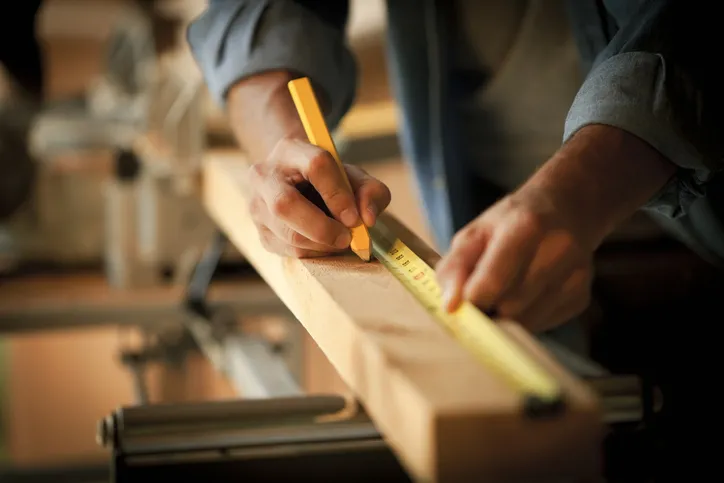People often hear the phrase “you get what you pay for,” but anybody who’s ever had to watch their budget knows it can be more complicated than that. Sometimes, the cheaper option seems like the smart choice—until it isn’t. Cost-cutting doesn’t always add up to savings. Spending a little more upfront can sometimes save you countless headaches and money in the long run. Here are ten times when it might actually be wise to loosen those purse strings.
1. Quality Footwear: Don’t Let Your Feet Pay The Price

Investing in quality footwear might seem indulgent, but your feet—and your entire body—will thank you. Cheap shoes often lack proper support and cushioning, which can lead to discomfort and even long-term health issues. According to Dr. John G. Kennedy, an orthopedic surgeon at NYU Langone Health, well-made shoes can prevent foot and back problems down the line. Spending a bit more on durable, comfortable shoes means less frequent replacements and fewer visits to the podiatrist. Comfort and durability can often justify the higher price tag.
Moreover, premium shoes often come with better materials and craftsmanship. They’re less likely to fall apart after a few months of wear, unlike their budget counterparts. The initial cost might seem high, but when you stretch it over the life of the shoes, it often works out cheaper. Additionally, quality shoes can be resoled or repaired, extending their lifespan even further. It’s an investment not only in your footwear but in your overall well-being.
2. Electronics: The Hidden Costs Of Going Cheap

When purchasing electronics, it’s tempting to go for the most budget-friendly option. However, cheaper electronics often cost more in repairs, replacements, and frustration. They may lack the durability and performance features that are essential for everyday use. A low-priced gadget might save you money upfront, but it can become a financial drain if it needs constant fixing or replacing. Opting for a reliable brand with a good warranty can be more economical over time.
Moreover, higher-end electronics often come with better customer support and service. This can be invaluable when you encounter issues or need assistance. Premium products also tend to have higher resale values, which can recoup some of your initial investment if you decide to upgrade later on. It’s not just about features and specs; it’s about the peace of mind that comes with a dependable device. So next time you’re tech shopping, consider what you’re really paying for.
3. Home Appliances: Buy Once, Cry Once

Home appliances are big-ticket items where spending a bit more can pay off significantly. Budget appliances might seem like a smart choice, but they often have a shorter lifespan and can be less energy-efficient. According to a study by Consumer Reports, investing in energy-efficient appliances can reduce your energy bills by up to 30%. High-quality appliances often come with better warranties, adding an extra layer of reassurance. In the end, the savings on your utility bills and the reduced need for repairs can outweigh the initial expense.
Additionally, more expensive appliances generally offer improved performance and convenience, which can enhance your daily life. Think of a reliable fridge that keeps your food fresh longer or a washing machine that doesn’t sound like it’s about to take flight. These everyday conveniences add up over time, making your home life smoother and more enjoyable. While the sticker shock can be daunting, the benefits of investing in quality appliances can make the extra cost worthwhile.
4. Professional Services: Expertise Matters

When it comes to hiring professionals, whether it’s for legal advice, accounting, or home renovations, cutting corners can be a costly mistake. Skilled professionals bring expertise and knowledge that can save you money in the long term. Hiring a cheaper, less experienced professional might seem like a good deal, but it can lead to errors and complications that require costly fixes. You’re paying for their skill set and the peace of mind that the job is done correctly the first time.
Furthermore, seasoned professionals are more likely to offer insights and recommendations that can improve the outcome of your project. They often have access to better resources and networks, which can be beneficial for your needs. Opting for a reputable expert also reduces the risk of encountering hidden fees or subpar results. While the upfront cost might be higher, the potential savings from avoiding mishaps and re-dos can make it worthwhile. Trust the expertise, and you’ll likely find it pays off.
5. Skincare Products: Your Face Is Worth The Investment

Spending a bit more on skincare products can make a significant difference in your skin’s health and appearance. Cheap products often contain lower-quality ingredients that can cause irritation or simply not deliver the results you want. Dermatologist Dr. Ava Shamban suggests investing in products with scientifically backed ingredients to ensure efficacy and safety. Quality skincare can prevent and treat issues more effectively, reducing the need for corrective treatments down the line. Your skin is an investment worth making.
Additionally, premium skincare brands often conduct more rigorous testing and research, ensuring their products are both safe and effective. They tend to offer better customer support, including consultations and personalized recommendations. This can help you build a skincare routine that truly works for you, minimizing trial and error. While expensive creams and serums might seem like a splurge, they can lead to long-term savings by achieving desired results without costly dermatological treatments. It’s about taking care of yourself, inside and out.
6. Furniture: The Pitfalls Of Flatpack Frenzy

Cheap furniture can be tempting, especially with the allure of trendy designs and low prices. However, low-cost furniture often sacrifices quality and durability in favor of price. This can lead to frequent replacements, as they may not withstand the test of time and daily use. Investing in well-made, solid furniture can save you money in the long run, as you won’t be constantly replacing broken or worn-out items. Quality pieces also tend to have better resale value.
Furthermore, premium furniture is often crafted with an eye for detail and craftsmanship, adding to the aesthetic appeal of your home. It can enhance the comfort and functionality of your living space, making it a more enjoyable place to be. Well-constructed furniture is also safer, reducing the risk of accidents caused by flimsy materials. While the cost can be a hurdle, the longevity and satisfaction gained from high-quality furniture make it a worthwhile investment. Think of it as furnishing your life, not just your home.
7. Travel Experiences: Memories Over Money

When it comes to travel, spending a bit more can lead to unforgettable experiences that are well worth the cost. Budget travel might save you money upfront, but it often involves compromises that can impact your overall enjoyment. According to Dr. Thomas Gilovich, a psychologist who studies happiness, experiences, not things, contribute the most to our long-term happiness. Investing in memorable experiences can lead to richer memories and personal growth. Whether it’s splurging on a guided tour or staying in a unique accommodation, these investments can enhance your travel.
Moreover, spending a bit more on travel experiences often provides better safety and convenience, which can be invaluable in a foreign country. Quality accommodations and reputable services can offer better security and comfort, making your trip stress-free. Investing in experiences rather than material goods can also build deeper connections with the places and people you encounter. While it may stretch your budget, the lasting benefits of meaningful travel experiences can outweigh the temporary strain on your finances. After all, the world is worth exploring fully.
8. Groceries: Eating Cheap Can Cost More Than You Think

Saving money on groceries seems like a no-brainer, but it can sometimes backfire. Cheap processed foods might fill your cart, but they often lack the nutrients your body needs, leading to potential health issues. Buying quality, fresh ingredients can be more expensive, but they contribute to better health and well-being. Investing in nutritious food can prevent costly healthcare expenses down the line. It’s about prioritizing what you put into your body, which can lead to a healthier and happier life.
Additionally, higher-quality groceries often taste better, making meals more enjoyable. This can inspire you to cook at home more frequently, potentially saving money on dining out. Good food can also bring people together, enhancing social connections and making mealtime a more rewarding experience. While the initial cost might seem higher, the benefits of a balanced, nutritious diet can have a positive impact on your life. It’s an investment in yourself, not just your grocery bill.
9. Tools And Equipment: When Cheap Breaks, You Might Too

Whether you’re a DIY enthusiast or a professional, investing in quality tools and equipment is crucial. Cheap tools tend to break easily, leading to frustration, inefficiency, and potential safety hazards. Spending more on well-made tools ensures they’ll perform better and last longer. This can save you money in the long run by reducing replacement costs and downtime. Quality tools often come with better warranties and customer service, providing additional peace of mind.
Furthermore, premium tools can enhance the quality of your work, whether it’s a home project or professional task. They often offer features and precision that cheaper models lack, resulting in better outcomes. Investing in reliable tools can also boost your confidence and motivation, making tasks more enjoyable and efficient. While the upfront cost might be higher, the long-term savings and satisfaction from using high-quality tools can make it a wise investment. Consider it building your toolkit for success.
10. Education And Skills: Learning Is Priceless

When it comes to education and skill development, spending more can lead to valuable returns. Cheap courses or self-teaching might seem cost-effective, but they often lack the depth and structure needed for comprehensive learning. Investing in quality education or training can open doors to better opportunities and increased earnings. It’s an investment in your future, providing knowledge and skills that can enhance your career and personal growth. Education can offer returns that are difficult to quantify but immensely rewarding.
Moreover, reputable educational institutions or programs often provide networks and resources that can further your success. They can connect you with mentors, peers, and opportunities that you might not find on your own. Investing in your education also demonstrates commitment and ambition, qualities that are highly valued in any field. While it may require a financial commitment, the long-term benefits of a solid education can be life-changing. In the world of learning, sometimes paying more is worth every penny.
This article is for informational purposes only and should not be construed as financial advice. Consult a financial professional before making investment or other financial decisions. The author and publisher make no warranties of any kind.








